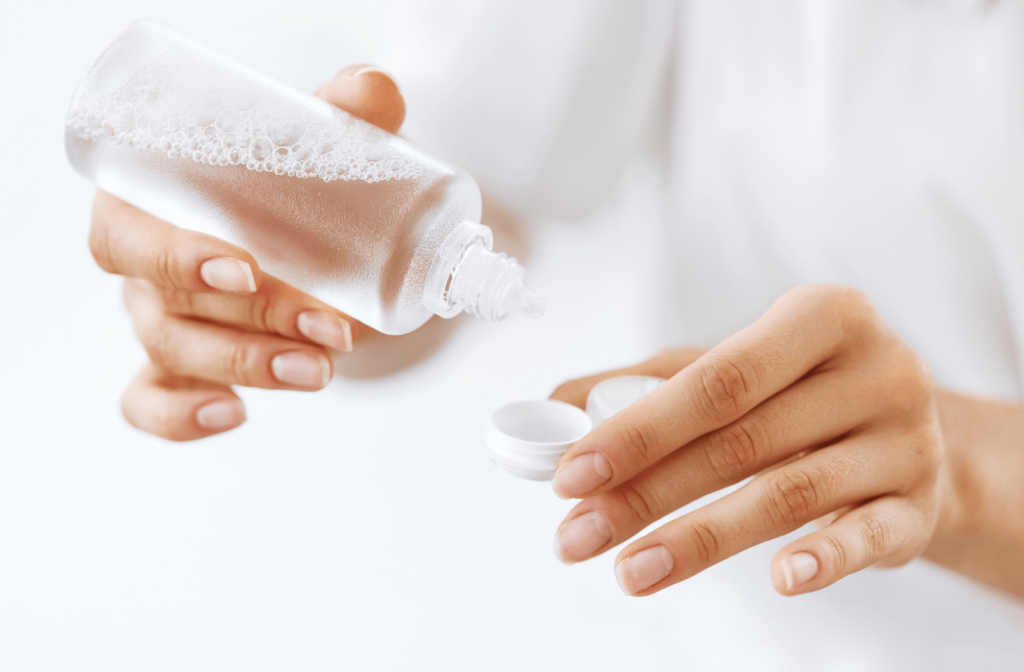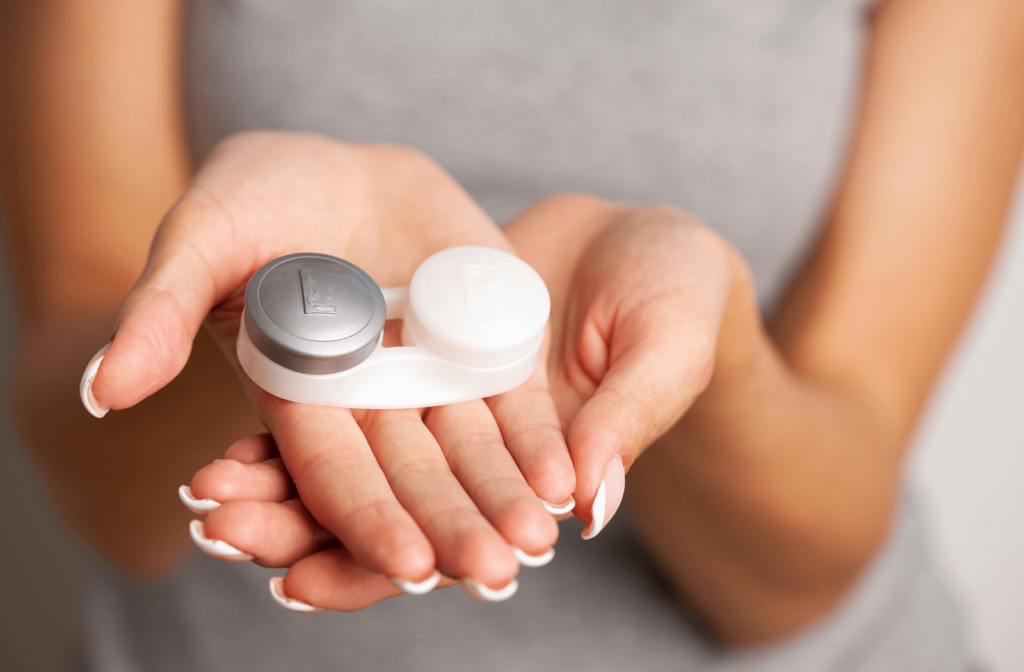Whether you have traditional or specialty contact lenses, caring for them is essential for your eye health. Removing, cleaning, and replacing your contact lenses when needed can help prevent potential problems. With the maintenance contacts need, do they ever expire?
Continue reading to learn more about contact lenses, including if they expire and how you can protect your eyes from unnecessary complications.
Can Your Contact Lenses Expire?
Yes, your contact lenses can expire. You should avoid wearing your contacts past this date—they’re medical devices that need to be sterile. Contact lenses can become compromised and contaminated if left in their case past the expiration date, leading to a possible infection.
The expiration date of your lenses can vary, depending on the kind. Regardless of the type, the packaging of your lenses should list the last date you can wear your lenses by.
What About Your Prescription?
Just like your contact lenses, your contact lens prescription can expire. This date is the last time your eye doctor will let you get new lenses. You’ll need a new prescription to get contacts after your current one expires.
Your prescription generally lasts for a year, and you’ll need another exam to receive an updated prescription. Keeping track of when your contact lenses expire is necessary for care and maintenance. Proper care can help you prevent infection and other contact lens issues.
Safety & Care Is Essential for Your Contact Lenses
Contact lenses can help you enjoy clear, comfortable, frame-free vision, but only if they fit well and you take care of them. If your lenses aren’t a good fit, they may do more harm than good for your eyes.
Contact lenses can feel uncomfortable or even damage your eyes if they don’t fit right. Contact lens exams are important for your eye health and vision, helping you avoid contact-related complications.
Your eye doctor examines your eyes to assess your eligibility for contacts and discusses your lifestyle, medical history, and other aspects of your eye health to identify your vision needs. Additionally, they’ll complete several eye measurements to help find the best fitting contact lenses for you.
After finding the contacts that best suit your needs, you’ll have a trial period where you can see how your lenses fit and make adjustments if needed. Well-fitting contact lenses are your first step to clear, comfortable vision.
Avoid Unnecessary Problems
You risk several potential problems when you handle your contact lenses poorly. Many of these problems are avoidable when you follow your eye doctor’s instructions and care for your lenses.
Your optometrist may recommend a few ways to avoid unnecessary issues with your contact lenses, such as:
- Practicing good hygiene
- Reducing contact with water & saliva
- Using contact lens solution
- Replacing lenses & contact lens cases as recommended
Your eye doctor is here to help you enjoy comfortable contact lenses, whether it’s answering questions, teaching you how to care for your lenses, or treating eye problems.

How Can You Care for Your Contact Lenses?
Maintaining your contact lenses can help prevent irritation and possible infections. You can care for your contact lenses in many ways, but always follow your optometrist’s instructions and recommendations. They will provide detailed care and handling instructions when you receive your contact lenses.
Always follow your eye doctor’s instructions, but here are some general guidelines you can follow when caring for your contacts:
- Don’t use eye medications or eye drops without speaking with your eye doctor first
- Don’t sleep or nap with your contact lenses in unless specifically told to by your doctor
- Have regular eye exams to care for your eyes & contacts
- Only use the cleaning & disinfecting products recommended by your eye doctor
- Only wear your contacts for the recommended time by your eye doctor, even if they still feel comfortable
- Remove, clean, & disinfect your contacts at the recommended periods by your eye doctor
Watch for Signs of Infection
Remember, there’s always a risk of infection with contact lenses, even if you follow your care instructions. Wearing contacts puts you at a greater risk of keratitis (infection of your cornea) and conjunctivitis (pink eye), an infection of the conjunctiva.
Stop wearing your contacts immediately and visit your optometrist if you notice any symptoms of an eye infection, including:
- Redness
- Swollen eyes
- Teary eyes
- Blurry vision
- Light sensitivity
- Itchy, burning, or gritty eyes
- Eye discomfort
Your eye doctor can examine your eyes, diagnose your infection, and help you find relief. They’re here to help with whatever eye problems you have.
Only Use the Best Contact Lenses for Your Eyes
While contact lenses can help you see glasses-free, they still need regular care and maintenance. Your eye doctor can help find and fit your contact lenses, but at-home care is essential for protecting your eyes from infection and irritation. Always follow your eye doctor’s instructions and advice regarding your contact lenses. Contact your optometrist if you’re interested in contact lenses or have any questions or concerns.



